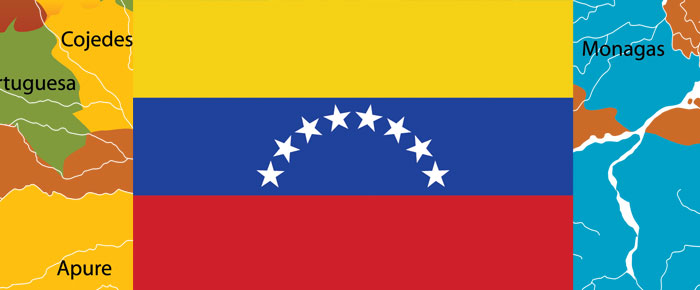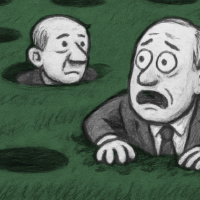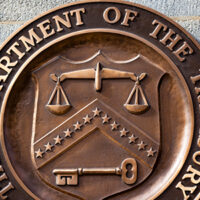
Despite its progress on improving AML/CFT legislation, Venezuela remains a politically high-risk country. Venezuela is portrayed by conservative academics and expert journalists as something of a membrane between Iran and the Western Hemisphere. The following article aims to highlight the political risks attached to Venezuela as a result of its foreign policy and unsavory relationships.
Venezuela—An Autocratic Oil State
Despite serious health problems and decreasing popularity, Hugo Chávez secured a further term in office in the October elections. Not only the fact that Chávez rubs shoulders with Iran and alleged international terrorist organizations, which has drawn the country into the critical limelight, but also the country's internal problems have become a source of concern. The country, which is rich in energy and sometimes even termed an oil state, faces a series of threats: security issues, violence, corruption and an ailing economy accompanied by inflation.
The Venezuelan government dominates the country's economy. The state oil company, PDVSA, controls the petroleum sector. Government companies control the electricity sector and important parts of the telecommunications and media sectors. In 2008, the government nationalized cement and steel producers, as well as select companies in the milk and meat distribution sectors. In 2009, it nationalized assets in oil including assets owned by U.S. oil services companies, chemicals, tourism, agribusiness, retail and banking industries. In 2010, the government nationalized companies in the agricultural and construction sectors as well as U.S. assets in the petrochemical and packaging industries. Threats of continuing nationalizations, as well as other threats to property rights and an uncertain macroeconomic environment characterized by high inflation and foreign exchange controls have led to reduced space for the private sector and low levels of private investment.1
Improved AML/CFT Legislation
In October 2010, Venezuela made a high-level political commitment to work with the FATF and CFATF to address its strategic AML/CFT deficiencies, and has since then also made progress in meeting international AML and CFT requirements.2 In February 2012, the Venezuelan National Assembly passed new legislation reforming the country's laws on organized crime and terrorism. As reported by Venezuelaanalysis.com, the legislation widens the number of crimes under its competence and also increases maximum sentences for offenses. The reformed Law against Organised Crime and Financing of Terrorism contains 30 new and 25 revised articles. These widen the classification and penalties of crimes related to narcotics trafficking, terrorism, money laundering, and the trafficking of humans, organs and arms, while establishing the maximum prison sentence allowed by the constitution of 25 to 30 years for those who commit an act of terrorism.3
Venezuela—An Increased Security Threat
Venezuela's president Hugo Chávez, continues to be strongly criticized for his links to Iran and for his alleged support of terrorist organizations, not only in South America but also in the Middle East. These relationships per se make Venezuela a high-risk country. Post 2012 presidential elections in the U.S., the purported security threat resulting from Venezuela could become a more prominent issue.
According to an article published in the Miami Herald in May 2012, Chávez is using Venezuela's oil wealth for other purposes. Chávez' support for Cuba reportedly exceeds $7 billion per year in subsidized petroleum shipments and investments in Cuba's oil infrastructure. Furthermore, the Venezuelan regime supports a variety of leftist, anti-American regimes in Latin America including Nicaragua, Bolivia and Ecuador. Chávez also has spent more than $6 billion in purchasing Russian weapons, creating a long-term Venezuelan dependency on the Russian military. Venezuela remains an open backdoor for Cuba's acquisition of sophisticated Russian weapons.4
As illustrated by the comments below, various conservative U.S. foreign policy think-tanks and journalists consider Venezuela to be a serious threat because of its role as a gatekeeper for Iran in accessing the Western Hemisphere, despite the severe sanctions imposed on the Iranian regime.
- Dr. Ray Walser, senior policy analyst at the Heritage Foundation calls for Venezuela to be added to the U.S. list of state sponsors of terrorism because of its support for acts of terrorism and subversion committed by the Revolutionary Armed Forces of Colombia (FARC) and because of its strategic alignment with the other four state sponsors of terrorism, Syria, Cuba, Sudan and particularly Iran.5
- Dr. Norman Bailey, claims in his paper published by The American Foreign Council in February 2012, titled 'Iran's Venezuelan Gateway' that Venezuela poses a serious threat to the national security of the United States.6 Of most concern is, according to Bailey, Venezuela's facilitation and encouragement of the penetration of the Western Hemisphere by Iran. He notes that the most visible and pervasive feature of Iran's regional presence stems from its extensive web of economic contacts which it built using Venezuela as a beachhead. These activities allow Iran to circumvent financial sanctions imposed by the United States, the European Union and the United Nations through the use of the Venezuelan financial system.
- Douglas Farah7, an investigative reporter for the Washington Post, senior fellow, International Assessment and Strategy Center and Adjunct Fellow, Center for Strategic and International Studies. In his testimony before the Senate Foreign Relations Committee Subcommittee on Western Hemisphere, Peace Corps, and Global Narcotics Affairs titled Iran's Influence and Activity in Latin America, Farah refers to the Bolivarian bloc of nations, which is led by Hugo Chávez of Venezuela and includes Rafael Correa of Ecuador, Evo Morales of Bolivia and Daniel Ortega of Nicaragua, as being highly criminalized states deeply involved in transnational organized crime (TOC) enterprises, particularly the cocaine trade. He notes that the Bolivarian alliance has formed numerous organizations and military alliances including a military academy in Bolivia teaching a military doctrine explicitly based on a concept of asymmetrical warfare modeled on Hezbollah, the terrorist group in Lebanon that receives extensive financing and support from Iran. Farah adds that Iran and the Bolivarian states bring a significant and dangerous new set of threats to the region as they work together with TOCs and terrorist groups. This threat includes not only traditional TOC activities such as drug and human trafficking, but also the potential for weapons of mass destruction.
- Dr. Vanessa Neumann, senior fellow, Foreign Policy Research Institute, published an article in late 2011 titled The New Nexus of Narcoterrorism: Hezbollah and Venezuela, in which she highlights the extent of the security threats posed by the close ties being fostered between Venezuela and Iran, amongst others.8 Neumann notes that besides its sponsored terrorist groups, Iran also has a growing direct influence in Latin America spurred by three principal motivations: 1) a quest for uranium, 2) a quest for gasoline, 3) a quest for a base of operations that is close to the United States, in order to position itself to resist diplomatic and possible military pressure, possibly by setting up a missile base within striking distance of the mainland United States, as the Soviets did in the Cuban Missile Crisis. FARC, Hezbollah and Al Qaeda all have training camps, recruiting bases and networks of mutual assistance in Venezuela as well as throughout the continent.
Venezuela, Terrorism and Drug Trafficking
Farah also notes that the emerging combination of threats comprises a hybrid of criminal terrorist, and state and non state franchises, combining multiple nations acting in concert, and traditional TOC and terrorist groups acting as proxies for the nation states that sponsor them.
According to Farah, each of the Bolivarian states has lifted visa requirements for Iranian citizens, thereby erasing any public record of the Iranian citizens that transit these countries. Given the extremely small number of tourists that travel the routes from Iran to Latin America, and the relatively small number of businessmen who are not tied to the Iranian state, one can assume most of the travel is related to Iranian officials. Based on his own research, Farah claims that many hundreds of Iranian citizens, if not thousands, travel to Latin America on undisclosed business. More than 400 Iranians traveled Panama in 2011, and even a higher number travel regularly to Ecuador, Bolivia and Venezuela. Panama is a significant new player in helping Iran avoid sanctions, often through Venezuelan front companies operating in the Colon Free Trade Zone. Iranians traveling in the region often use identity cards issued by Bolivarian states, including Ecuador and Venezuela, to move freely across the region.
Neumann has noted that the global interconnectedness of Latin American governments and Middle Eastern terrorist groups have come from Walid Makled, Venezuela's latter-day Pablo Escobar, who was arrested on August 19, 2010. Makled, a Venezuelan of Syrian descent known variously as "El Turco" ("The Turk") or "El Arabe" ("The Arab"), is allegedly responsible for smuggling 10 tons of cocaine a month into the U.S. and Europe — a full 10 percent of the world's supply and 60 percent of Europe's supply. Makled owned Venezuela's biggest airline, Aeropostal, huge warehouses in Venezuela's biggest port, Puerto Cabello, and bought enormous quantities of urea (used in cocaine processing) from a government-owned chem-
ical company.
Iranians traveling in the region often use identity cards issued by Bolivarian states
An article published by Bloomberg in April 2012 quoted Columbia's former President, Alvaro Uribe as describing Venezuela as "a haven for drug traffickers and terrorists" and "a paradise for terrorists from Colombia, for narco-trafficking." Uribe reportedly often clashed with Venezuelan President Hugo Chávez during his time in office, accusing his neighbor of harboring drug-funded guerrilla groups.9 The growing routes linking South American cocaine to Middle Eastern terrorists are primarily from Colombia through Venezuela. According to an April 2011 report by the United Nations Office on Drugs and Crime (UNODC), the Bolivarian Republic of Venezuela is the most prominent country of origin for direct cocaine shipments to Europe, with the cocaine coming mainly from Colombia, primarily the FARC and ELN terrorist groups.
Summary
As outlined above, academics and journalists believe that Iran and its proxy force Hezbollah are striving to expand their influence, their intelligence capabilities, military capacities and sanction evasion methods. As noted by Douglas Farah, they have built alliances with the Bolivarian states of Latin America, led by Hugo Chávez of Venezuela, and his proxy force the FARC, for its purpose. The developments within the Bolivar states is of concern as the weakening of states is corroding many of the first generation democracies and their constitutional and civil society processes, and setting a predicate for a reassertion of authoritarian rule.
It is therefore important, when dealing with Venezuela, or indeed the other Bolivar States, to take the broader political dimension into consideration when a assessing the risks in dealing with clients in Venezuela and also within the wider region.
- http://www.laht.com/article.asp?ArticleId=359501&CategoryId=13301
- http://www.fatf-gafi.org/topics/high-riskandnon-cooperativejurisdictions/
- http://venezuelanalysis.com/news/6784
- http://www.miamiherald.com/2012/08/05/2930050/irans-influence-in-venezuela-washington.html
- http://www.heritage.org/research/reports/2010/01/state-sponsors-of-terrorism-time-to-add-venezuela-to-the-list
- http://www.afpc.org/publication_listings/viewBook/1335
- http://www.strategycenter.net/docLib/20120218_Testimony_Farah_IranLA_021612.pdf
- http://www.fpri.org/enotes/2011/201112.neumann.narcoterrorism.html
- http://www.bloomberg.com:news:2012-04-26:colombia-uribe-says-venezuela-is-paradise-for-terrorist.html










